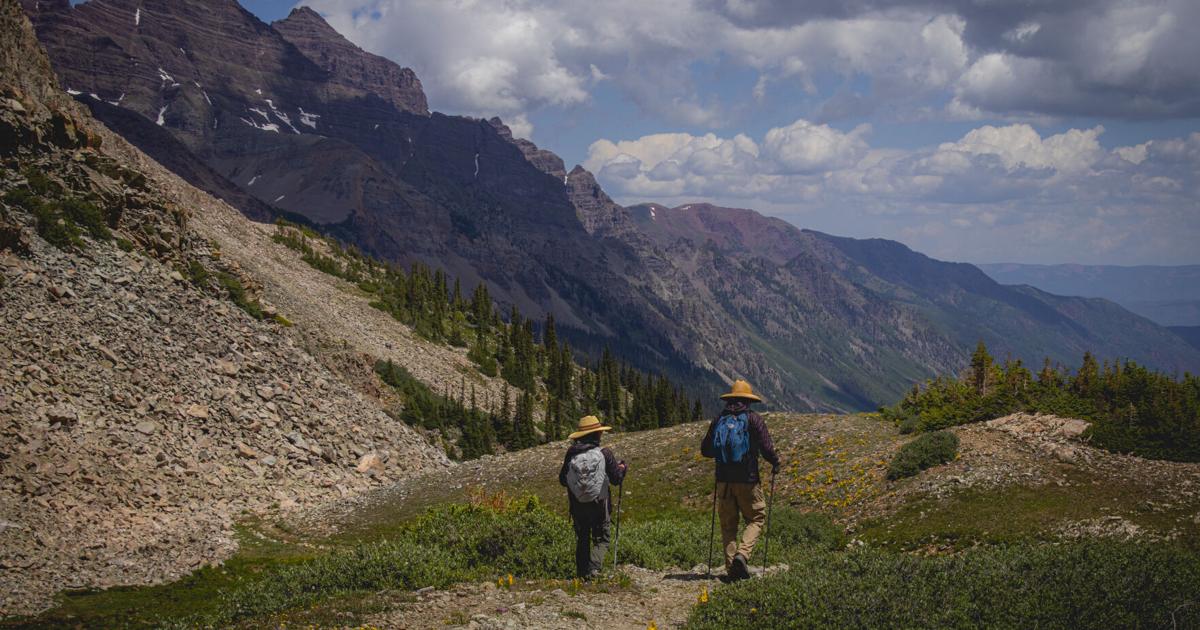
Colorado is rapidly losing ground to other states as a tourist destination.
Travel spending in Colorado rose 0.3 percent in 2024 from the previous year, according to the most recent annual report from the Colorado tourism office. Nationally, travel spending rose 4.2 percent during the same timeframe. The state’s market share fell from a high of 2.1 percent in 2019 to 1.8 percent last year, the report found.
People are still spending a lot of money in the state’s tourist hot spots, but growth has stalled from a boom in visitation that started during the pandemic as people flocked to outdoor destinations. Overall traveler spending in Colorado was $28.5 billion last year, compared with $28.4 billion in 2023.
The current numbers available for the beginning of this year aren’t promising either. Hotel occupancy is down 2 percent through June, according to Colorado’s tourism office. The decline in short-term rental usage, which includes Airbnbs, is more pronounced. Occupancy at such properties was down nearly 10 percent during the first quarter of 2025.
In terms of international visitors, the decline is even more pronounced. Colorado’s international tourism market share has been slipping steadily since 2019. Combined with a sharp reduction in international travellers, particularly from Canada, Europe, and Australia, the state’s tourism infrastructure is under strain. These changes have raised alarms for the tourism-dependent communities that rely heavily on international visitors, especially for winter tourism.
International visitors typically stay longer and spend far more than domestic travellers. This makes their absence more impactful for local economies, particularly in mountain towns that depend on their high-spending habits. For example, international tourists are known to spend up to five times more per day than domestic tourists, creating a significant gap in revenue when they choose to visit other destinations. The noticeable decline in international bookings has been attributed to several factors, including the effects of past U.S. policies, tariff concerns, and ongoing political uncertainty, which have made American destinations less appealing.
According to industry analysts, international travel has not fully recovered from the COVID-19 pandemic, and Colorado has seen fewer international tourists.
In response to these challenges, local businesses and lodging owners are increasing room rates by about 4% compared to 2024 in an attempt to offset declining numbers. However, this strategy presents its own risks. Price hikes could price out budget-conscious travellers, particularly those who would traditionally stay in more affordable lodgings, exacerbating the problem further.
The short-term rental market is also facing pressure due to stricter regulations imposed by local governments. These measures aim to address the housing shortage in resort towns caused by an oversaturation of vacation rentals. While these regulations are intended to protect local workers and prevent housing price inflation, they have also led to higher costs for renters. This has triggered a noticeable dip in the number of budget-conscious travellers booking stays in Colorado.
Tourism is a big economic driver for Colorado. Every $1 million in traveler spending led to seven new jobs in 2024, according to the report. Overall, tourism supported 188,510 jobs across the state.
The average income of the state’s visitors is skewing higher. For instance, 23 percent of visitors had an annual income between $100,000 and $149,900 in 2024, compared to 18 percent in that income bracket in 2023. On the flipside, 31 percent of last year’s visitors made less than $49,900, down from 36 percent in 2023.
In the meantime, the Colorado Tourism board says they will continue to promote communities across the state with its Do Colorado Right campaign and Stewardship program.
As Colorado is one year away from its 150th birthday, there are many who feel now may be a good time for Colorado residents to experience more domestic locations.


